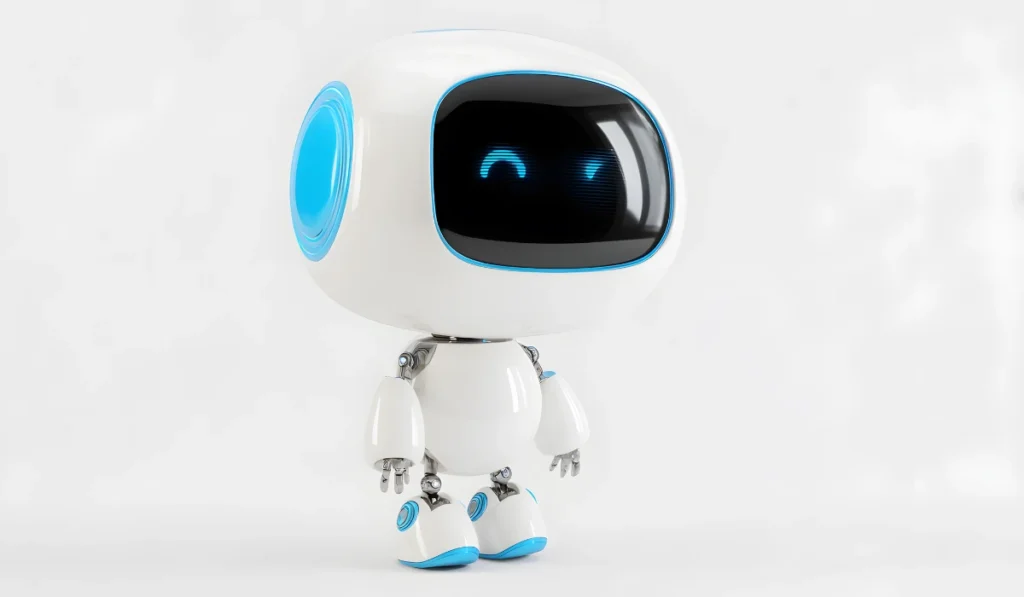Artificial intelligence has grown rapidly, becoming an essential part of business, education, healthcare, and creative industries. Moreover, modern AI solutions help users automate tasks, gain insights from data, and make decisions faster and more accurately. Individuals and companies alike are benefiting from AI, which is now accessible even to small businesses and solo creators. Therefore, understanding the most popular AI tools available today is crucial for staying competitive in the digital age.
AI technology offers an impressive variety of tools. For example, natural language processing, image recognition, predictive analytics, and conversational AI solutions cover nearly every industry. AI-powered chatbots improve website interaction, while machine learning models forecast market trends. Consequently, businesses can streamline workflows and make more informed decisions. This diversity of applications makes AI indispensable for modern operations.
Boosting Productivity with AI Tools

AI solutions dramatically enhance productivity by automating repetitive tasks, allowing humans to focus on creativity and strategy. Additionally, these tools learn and optimize performance over time, reducing errors and improving efficiency. As a result, teams can achieve more in less time while maintaining higher quality standards.
In workplaces, AI streamlines document management, email handling, and customer support. Furthermore, healthcare professionals use AI to assist in diagnoses, while educators rely on AI-driven platforms for personalized learning. Even daily tasks, such as scheduling or research, can be improved with intelligent AI assistants. Ultimately, AI frees up time for higher-value activities.
AI Tools for Content Creation
Content creation has become one of the most dynamic areas for AI adoption. Not only do these tools save time, but they also enhance creativity and quality. Furthermore, they provide valuable insights and suggestions that help creators produce more engaging and optimized content.
-
Writing Assistants: Platforms like Jasper and Writesonic generate articles, social media posts, and marketing copy.
-
Grammar and Style Tools: Grammarly and ProWritingAid improve readability and accuracy.
-
SEO Optimization Tools: SurferSEO and Frase help content rank higher in search engines.
-
Design Platforms: Canva AI and Adobe Firefly assist in creating graphics efficiently.
In addition, integrating these solutions helps content creators maintain consistency, originality, and measurable performance improvements.
Data Analytics and Business Intelligence Tools
AI is critical for analyzing data, discovering trends, and supporting decision-making. Moreover, these tools empower organizations to act proactively rather than reactively. Consequently, businesses can identify opportunities early, optimize strategies, and stay ahead of the competition.
-
Predictive Analytics: RapidMiner and IBM Watson forecast customer behavior and market patterns.
-
Business Intelligence: Tableau and Power BI visualize complex datasets.
-
Customer Analytics: Salesforce Einstein and Zoho Analytics track engagement and optimize strategies.
-
Process Automation: UiPath and Automation Anywhere reduce manual tasks and streamline operations.
As a result, businesses gain deeper insights and make better-informed decisions.
AI in Healthcare: Improving Patient Outcomes

Healthcare has been revolutionized by AI solutions. For instance, medical professionals use AI to detect anomalies in imaging, predict disease progression, and support treatment plans. Additionally, AI helps streamline administrative tasks, allowing doctors and nurses to focus more on patient care and improving overall outcomes.
Hospitals rely on AI to manage patient records, optimize workflow, and provide virtual assistance. Additionally, research platforms leverage AI for faster drug discovery and modeling. Consequently, AI improves both patient care and operational efficiency, benefiting medical staff and patients alike.
AI in Education: Personalized Learning Solutions

AI is transforming education by customizing learning experiences to individual needs. For example, adaptive platforms track student progress and adjust lessons for better comprehension. Moreover, these tools provide teachers with actionable insights, enabling more effective instruction and personalized support for each student.
Teachers also benefit from AI tools that automate grading, analyze performance, and provide actionable insights. Moreover, applications like Duolingo use AI to create personalized language-learning paths, while remote learning platforms make education more accessible worldwide. Ultimately, AI fosters engagement and lifelong learning opportunities.
Security and Privacy Challenges with AI
AI brings tremendous benefits but also raises concerns about data security and privacy. Therefore, companies must protect sensitive information and ensure ethical AI usage. In addition, implementing robust security protocols and regular audits helps build trust with users while minimizing potential risks.
-
Encryption Tools: Safeguard data used in AI applications.
-
Access Controls: Limit access to authorized personnel.
-
Privacy-Preserving AI: Federated learning reduces exposure of personal data.
-
Regular Security Audits: Identify and fix vulnerabilities proactively.
In conclusion, addressing these challenges ensures trust and long-term adoption of AI.
AI for Creative Industries: Art, Music, and Design
AI is reshaping creative fields, enabling artists, musicians, and designers to explore new possibilities. For example, AI-generated art, music, and design content provide inspiration while saving time. Furthermore, these tools allow creatives to experiment with innovative ideas and refine their work more efficiently than ever before.
-
AI Art Generators: DALL·E and MidJourney create unique digital artwork.
-
Music Composition AI: AIVA and Amper Music generate melodies.
-
Design Assistants: Canva AI and Adobe Firefly streamline visual content creation.
-
Video Editing AI: Runway AI automates and enhances video production.
Additionally, these solutions complement human creativity, allowing professionals to innovate efficiently.
Future Trends in AI Tools
The next generation of AI tools promises even more sophisticated capabilities. Furthermore, emerging trends include advanced virtual assistants, real-time analytics, and multimodal AI platforms. Consequently, businesses and individuals can expect smarter, more integrated solutions that enhance productivity, creativity, and decision-making across industries.
-
Conversational AI: Chatbots capable of nuanced dialogue.
-
AI for Climate Solutions: Predictive tools for environmental monitoring.
-
Multimodal AI: Combining text, images, and audio for richer experiences.
-
Collaborative AI: Supporting teamwork with intelligent recommendations.
Consequently, staying informed about these innovations ensures individuals and businesses remain competitive in the evolving AI landscape.
FAQs
Q1: Are AI tools expensive?
Costs vary from free applications to enterprise-grade platforms, accommodating all budgets.
Q2: Will AI replace human jobs?
AI automates routine tasks but enhances human creativity, decision-making, and strategic thinking.
Q3: Are AI tools secure for sensitive data?
With proper security protocols and privacy measures, AI platforms can be used safely.
Conclusion
AI tools available today are revolutionizing industries by improving productivity, creativity, and decision-making. Moreover, from content creation to healthcare, education, and business intelligence, AI solutions are reshaping workflows and experiences. For instance, in the real estate sector, specialized AI tools for real estate help agents analyze market trends, automate property management, and deliver personalized client experiences.
While security and ethical considerations are important, adopting AI strategically allows individuals and organizations to unlock new opportunities and remain competitive. For instance, exploring innovative tools like the best AI drawing apps can enhance creativity and efficiency across various industries. Ultimately, embracing AI ensures a smarter, more connected, and efficient future.











